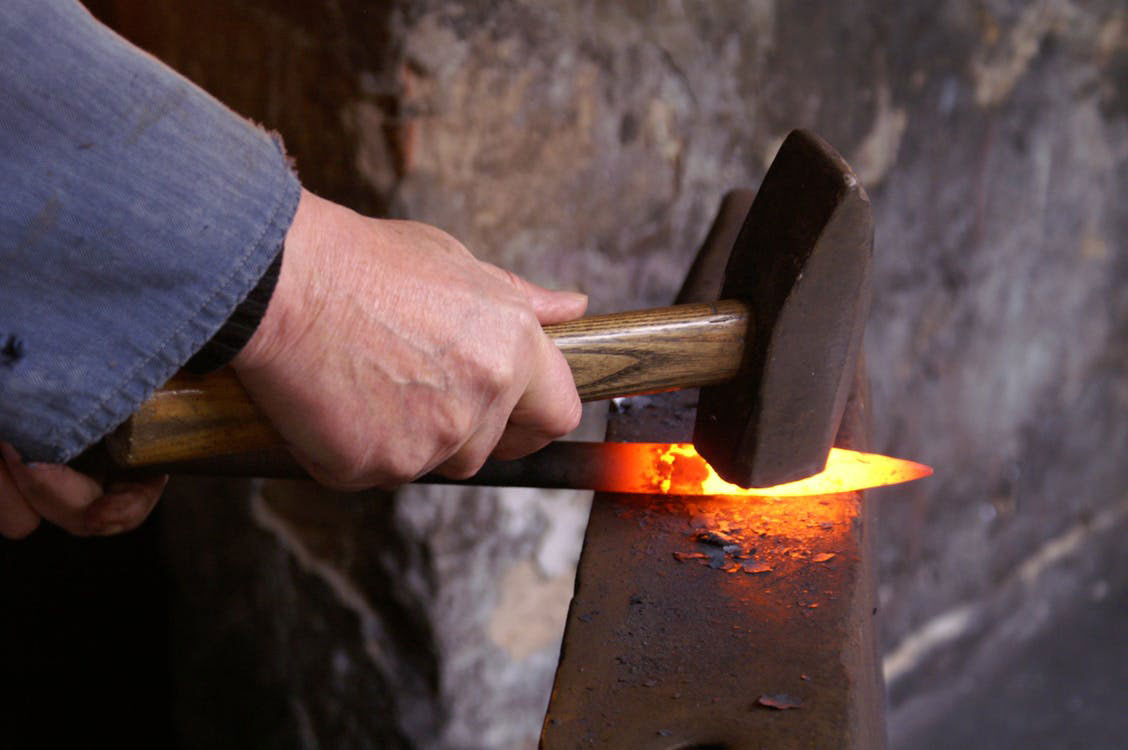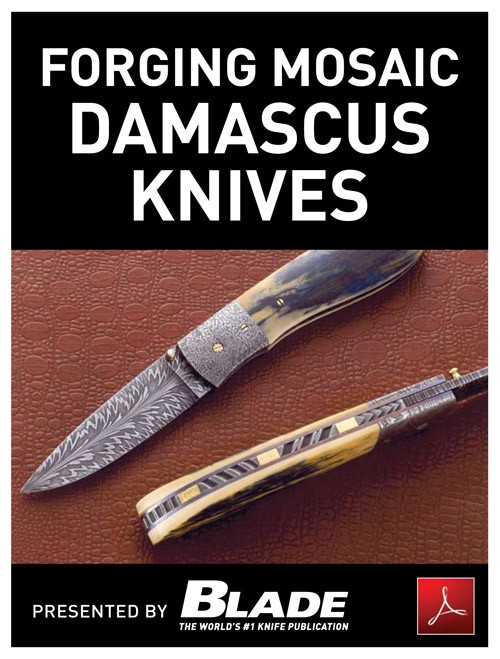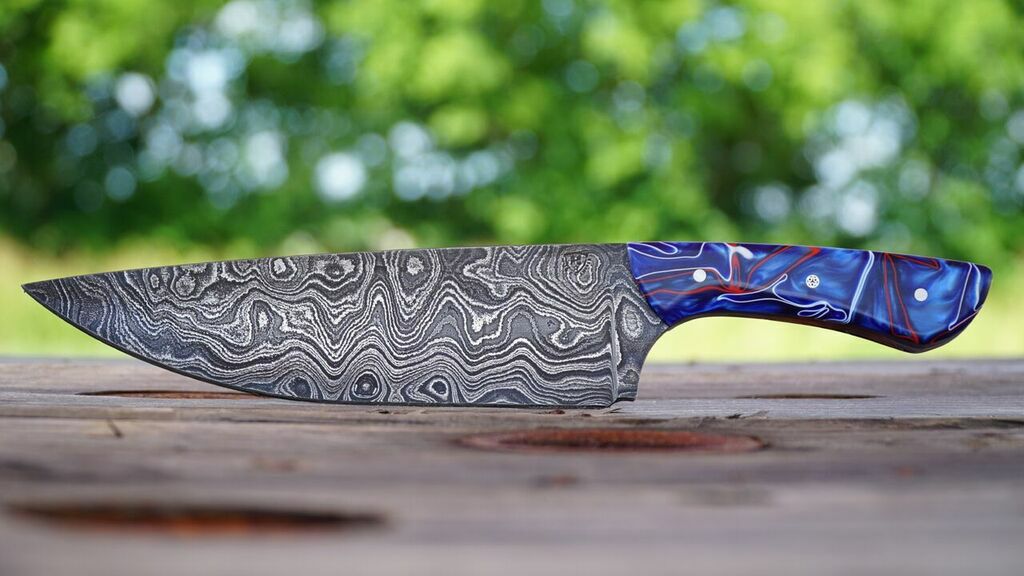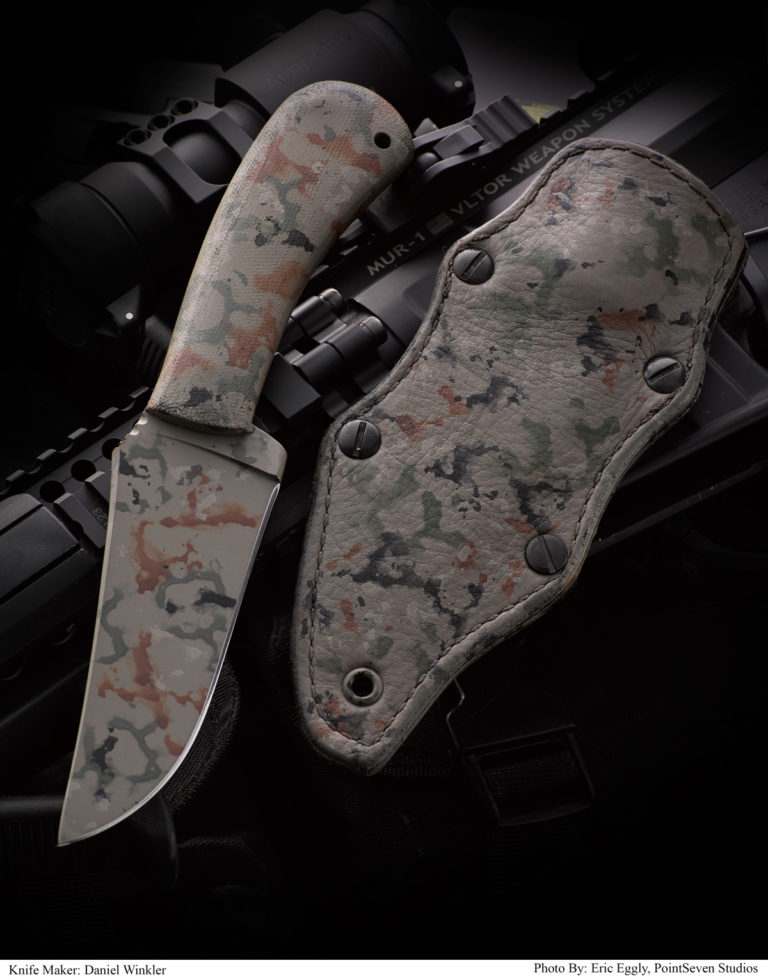
What is a Full-Time Knifemaker?
There are different definitions of a full-time maker. My definition is that of a maker whose sole source of income comes from the making and selling of his/her knives. This is no easy task.
In fact, by my estimate, less than 2 percent of the makers worldwide fit into this category. The reason the number is so low is it is very difficult to depend on knifemaking as your sole source of income.
I asked five full-timers what it takes to make a living making knives: David Broadwell and ABS master smiths Jerry Fisk, Daniel Winkler, Don Hanson and Shawn McIntyre. All agree the following are keys to becoming a full-time maker.
#1 – Treat Your Knifemaking Business Like a Business
Fisk’s advice is to take college courses on business management, accounting and marketing prior to going full time. McIntyre agrees. He recommends putting as much effort into learning to run a small business as you do into making knives.
I recommend adding a certified public accountant (CPA) to your knifemaking team. In addition to handling your books, a CPA can recommend which type of business entity you should form. Perhaps the CPA’s best skill: tax planning.
#2 – Invest in Equipment
What kind of equipment? As Winkler noted, he and his partner, Karen Shook, “invest money in new equipment that will make our work better and more efficient.”
#3 – Find Your Niche
This is where your marketing plan comes into play. The objective is to optimize how you introduce your knives to potential buyers. At a minimum, your plan should address how you will make the most of attending knife shows, advertising in print and on the internet, and the potential of working with a dealer and/or purveyor.
#4 – Communication Matters
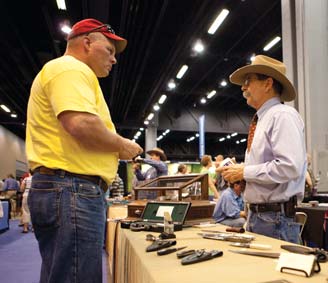
For Hanson, it is one of the most important aspects of being a full-time maker.
“I answer phone calls and e-mails very quickly, and deliver on time or contact clients and let them know why there is a delay,” he stressed. “I listen to my clients.”
#5 – Create a Competitive Advantage
What separates you from your competitors? Winkler said adding Shook and her period style of sheathmaking to his operation years ago gave him a competitive advantage at the time.
“She brought a lot of business skills and makes sheaths that really put our work in a whole new league,” he observed.
More times than not your competitive advantage will come from being the first to adopt a new steel, handle material, design element, etc. You should incorporate such use of new materials or techniques into your business plan.
#6 – Delegate
No matter what their level of expertise, most makers realize they cannot do it all by themselves, though some try. Successful businessmen understand that utilizing the expertise of others frees them up to do the things they do best.
#7 – Use Professional Photography
One thing the makers interviewed all agreed on was employing a professional to photograph their knives.
#8 – Love What You Do (But Stay Grounded)
Enthusiasm and loving what you do are important factors in becoming a successful full-time knifemaker. However, understanding and implementing basic business concepts are equally important to building and maintaining a long-term, successful enterprise.
Final Words of Wisdom
Winkler may have summed it up best.
“I suspect very few makers are at [the full-time] level, as it’s the most difficult to survive in. It does not make your work more sought after. It does not put you in any kind of ‘exclusive club.’ But,” he observed, “if a maker can handle the pressure, it can be very rewarding mentally and somewhat rewarding financially.”
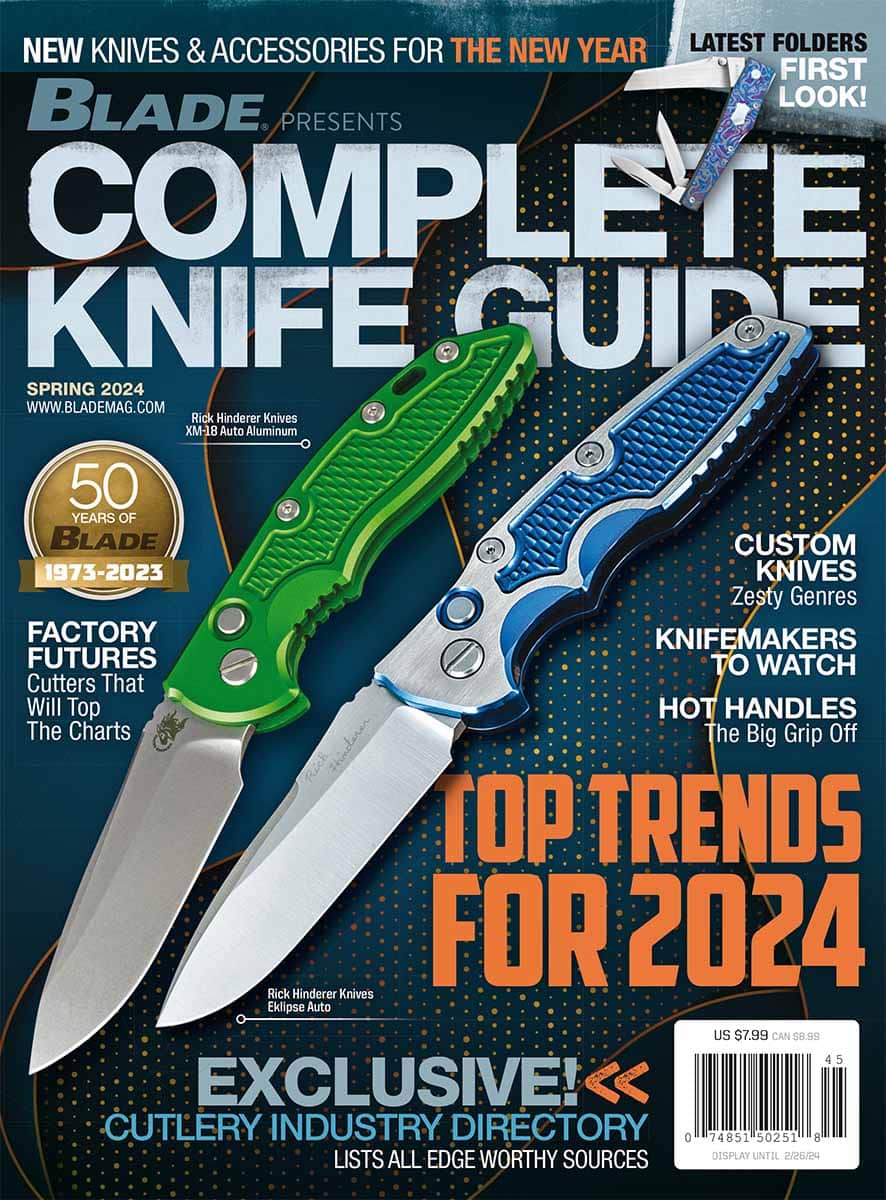 NEXT STEP: Download Your Free KNIFE GUIDE Issue of BLADE Magazine
NEXT STEP: Download Your Free KNIFE GUIDE Issue of BLADE Magazine
BLADE’s annual Knife Guide Issue features the newest knives and sharpeners, plus knife and axe reviews, knife sheaths, kit knives and a Knife Industry Directory.Get your FREE digital PDF instant download of the annual Knife Guide. No, really! We will email it to you right now when you subscribe to the BLADE email newsletter.


